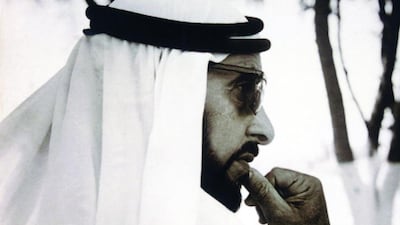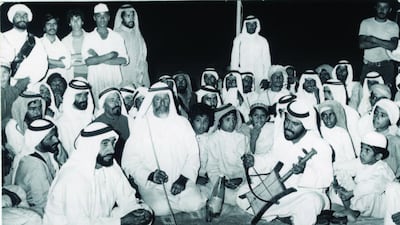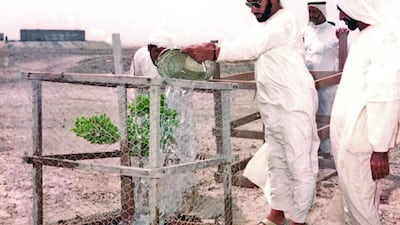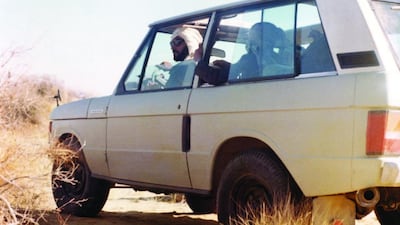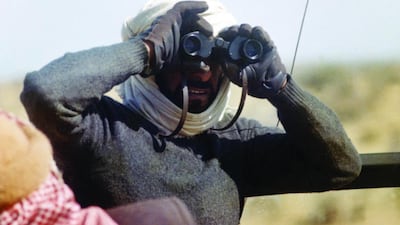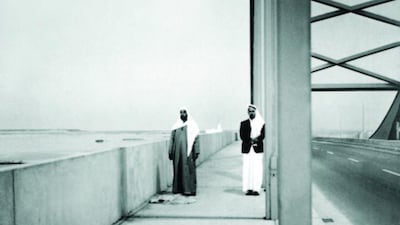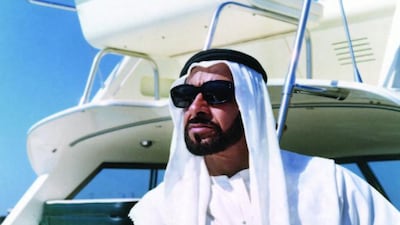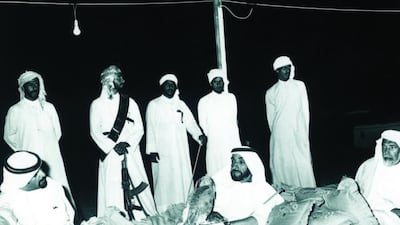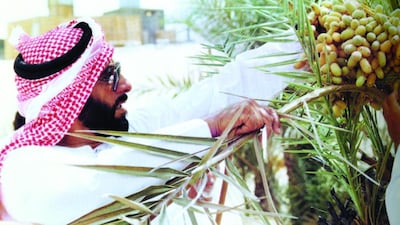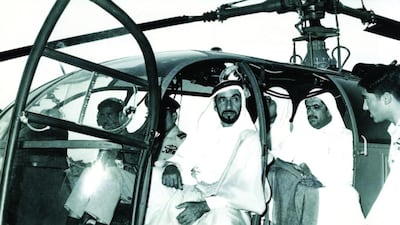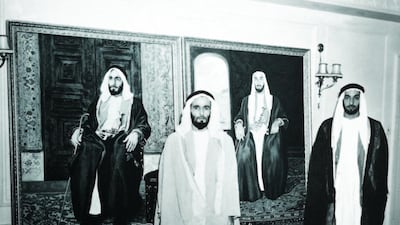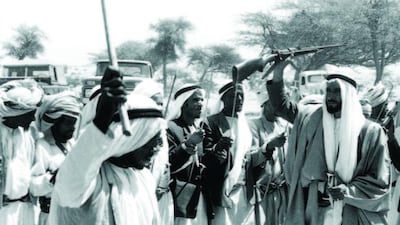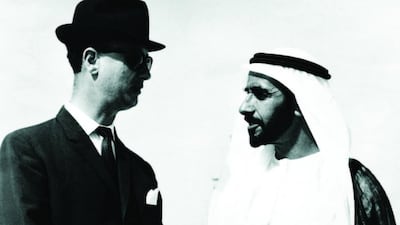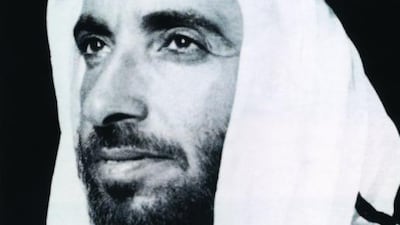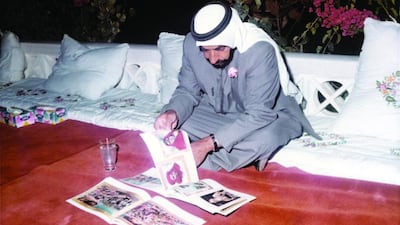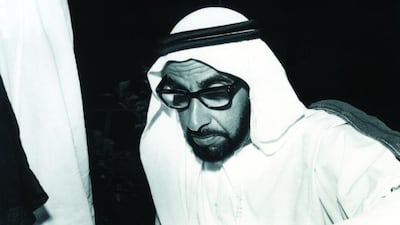The story of UAE Founding Father, the late Sheikh Zayed bin Sultan Al Nahyan, is one that has been widely told.
There is a formidable number of television programmes, films and books about his life, as well as a vast trove of historical treasures accessible at the National Archives, that will ensure his legacy will endure for a long time to come.
But what if that story can be shared with a wider international audience and new generation of Arabs who, perhaps, are unfamiliar with the UAE’s story before it was transformed into the economic powerhouse it is today?
This is the perspective guiding Nasser Al Dhaheri's The Millstone: Al Ain 'The Eye', a revealing and at times lyrical ode to Sheikh Zayed that premiered as part of the Abu Dhabi Language Centre's programme at Cairo International Book Fair on Tuesday.
An aspect the film immediately makes clear — through historic footage and interviews with former royal courtiers, political advisers and Al Ain residents — is the UAE was a radically different place before Sheikh Zayed’s birth in 1918.
It was a rugged and, in some cases, barren collection of emirates occasionally riven by conflict. It was the days of pre-oil boom and tribes made a living through dangerous pursuits such as pearl diving and coal making.
Through historical interviews dating back more than three decades, the film features various UAE residents talking about a life far removed from the seven-lane motorways and sky-high towers.
A trip from Dubai to Al Ain by camel, for instance, could take up to 10 days with a rest stop in Abu Dhabi.
There was no formal education and the irrigation system, so essential to livelihoods at the time, was mediocre or favoured wealthy landowners.
Then there was the political flashpoint in Al Ain during the 1940s and 1950s, in which parts of the oasis were occupied by Saudi Arabian and Omani troops as part of a wider tribal dispute.
Despite the turbulence, The Millstone also displays the resilience of these early Emirati families and the community spirit binding them together.
Families bartered food and vegetables, communal gatherings were savoured, and children who completed reading the Quran were feted with a house party attended by the local village.
These moments, found in the first half, are the best moments of The Millstone.
Al Dhaheri brings these strands together expertly to explain the political and social context marking the leadership of Sheikh Zayed, beginning with the governorship of the Eastern Region of Abu Dhabi in 1946 before being the first appointed president of the UAE with the country's federation in 1971.
Sheikh Zayed’s leadership, the film suggests, was characterised by twin goals to develop and elevate the UAE — from forming the first public schools in 1959 to the building of roads linking disparate towns and emirates — without sacrificing the community bonds central to everyday life.
Striking that balance required a deft touch.
According to the testimonies of former Al Ain residents, Sheikh Zayed managed to convince families to send their children to public schools through encouragement and not coercion.
As for the wide and open roads of Abu Dhabi, the film shows it comes from Sheikh Zayed’s aversion to “mazy” thoroughfares.
In an interview with The National, Al Dhaheri said the film will be screened in 20 international cities during the year, including film festivals in London and New York.
He confirms the documentary will also show at Al Ain Film Festival, running from February 6 to 11, as well as at an event in Dubai in March.
The Millstone is a worthwhile and accessible entry point for those wanting to discover one of the most consequential regional figures in modern history.
